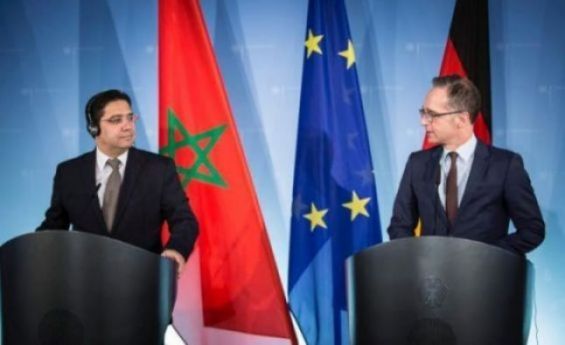Morocco announced on Thursday that it had recalled its ambassador to Germany Zohour Alaoui for consultation. In a statement sent to Yabiladi, the Ministry of Foreign Affairs, African Cooperation and Moroccans living abroad indicated that the Federal Republic of Germany has «increased hostile acts and actions that are detrimental to the interests of the Kingdom of Morocco».
The same source added that «Germany stood out with a negative attitude on the issue of the Moroccan Sahara. Its antagonistic activism, following the American presidential proclamation recognizing the sovereignty of Morocco over its Sahara, is a serious act which remains unexplained until now».
«The authorities of this country act with complicity with regard to a former convict for terrorist acts, in particular by disclosing to him sensitive information communicated by the Moroccan security services to their German counterparts», denounced the ministry.
It also points to the «continued determination to fight Morocco's regional role, in particular on the Libyan file, by trying to remove the Kingdom, unduly, from certain regional meetings devoted to this file, such as the one held in Berlin».
«For all these reasons and because of this constant and unacceptable adversity, the Kingdom of Morocco has decided to recall, for consultation, the Ambassador of His Majesty the King to Berlin», the statement concluded.
Two months of tension
On March 1, the Moroccan Foreign Ministry announced the suspension of all communication between the government of Morocco and Germany. In a document signed by Nasser Bourita, the department explained this decision by «deep misunderstandings with the Federal Republic of Germany over fundamental issues of the Kingdom of Morocco». On condition of anonymity, a security source told Yabiladi that «Morocco's anger is linked to suspicion of espionage», adding that «Berlin would have sent informants to collect very sensitive information on the kingdom».
A few days later, foreign intelligence sources, quoted by El Espanol indicated that «the German counter-espionage obtained secret and sensitive information in Morocco on its plans of action in European countries».
«The intention was to assert itself as an ally of Germany in the fight against organized crime. In return, Rabat wanted Berlin to recognize Moroccan sovereignty over Western Sahara», the same source revealed, adding that «Morocco has sought to set up a bilateral cooperation scheme in Central Europe similar to that which it maintains with its major allies on the continent, such as Spain and France (…) in controlling drug trafficking and migration».
For the record, the day after Morocco's anger, the kingdom's ambassador in Berlin was summoned by the Secretary of State of the Federal Ministry of Foreign Affairs for an urgent discussion.





 chargement...
chargement...













